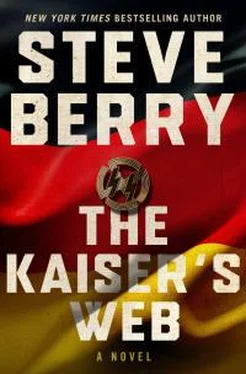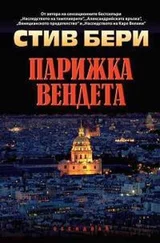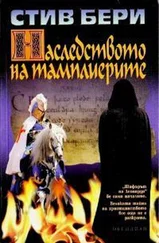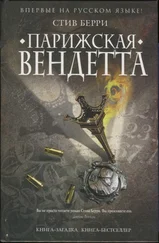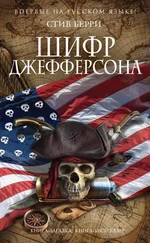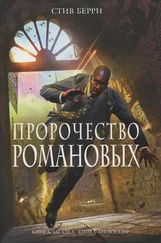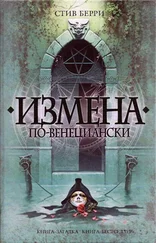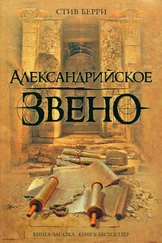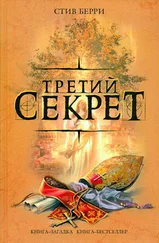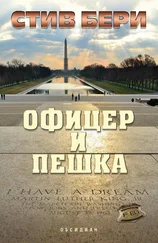He stepped to the door and slowly turned the knob.
The thick slab of ornately carved wood was well hinged and eased open without a sound. He was right. The room beyond was indeed an elaborate bedchamber. He took in the silhouettes that dotted the space. Tall, heavy furniture, a four-poster canopy bed, clothes strewn across a small sofa. A rug filled the center, but from the runner in the hall to the start of the rug was a good five paces. He spied the covers on the bed and noticed a mound in the center, signaling where Jan Bruin was sleeping, the height and width consistent with the big man’s girth.
He could approach closer, but the wood floor might betray his presence. So he weighed his options. Before he could decide on what to do, though, movement to the right caught his attention. A squat black form appeared in a doorway, then suddenly lunged forward on all four legs.
A rottweiler.
Finally.
Paws clicked off the floor as the dog raced toward him. A growl grew louder as the dog drew close. White fangs flashed against a light tongue. In the instant before the animal could leap, he pointed and fired the pistol. The retort was loud and a pitiful yelp signaled that he’d found his mark. The dog reeled to one side, crying out in agony.
Another shot and the animal went silent.
Before Jan Bruin could react, he deposited three rounds into the coverlets. Bruin never moved from the bed.
He needed to act fast.
The house was large, and though Bruin had said he lived alone, there were surely servants quartered somewhere. He’d planned his escape through one of the windows, disappearing into the veld beyond, back to his waiting vehicle and out of the region, but he needed to be sure Bruin was dead. There was one bullet left in the target pistol, so he stepped to the bed and reached for the thick covers.
Light flooded the room.
He raised a hand to shield his eyes from the burning rays, trying to give his pupils a moment to adjust.
He turned.
Jan Bruin stood in the hall doorway, a rifle muzzle pointed straight at him. Three other men—broad-shouldered, bronzed, simple-looking fellows—appeared from the remaining doors leading from the bedchamber, they too with guns leveled.
“Did you think me that stupid?” Bruin asked in German.
He said nothing.
Bruin entered the room and moved to the dog, its body bleeding onto the wood floor. He knelt and gently stroked the animal. “Poor Goliath. I had to sacrifice him for you.” Bruin stood. “And that makes me angry. Men like you disgust me.”
He still held the pistol, though at his side.
“Put the gun on the bed,” Bruin commanded.
No choice, so he tossed the pistol down.
“It would give me no greater pleasure than to kill you,” Bruin said. “My father warned me many times about men such as yourself. He knew your type. Following orders. Blindly. But unfortunately, killing you would only serve notice for more to come, and that is the last thing I need.”
His eyes were now accustomed to the light. He reached down and slid back the covers. Pillows filled the mound that masqueraded as Bruin. “How did you know I would come tonight?”
“Tonight, tomorrow, the next day. One of those would have been correct. You could not, or should I say your employer could not, allow me to remain alive once you were aware that I knew things. That is why I told you what I did.”
He slipped a glance at the other three men who each stood impassive, their guns still leveled.
“No need to worry,” Bruin said. “They do not understand German. This conversation is between you and me alone.”
“What now?” He was interested in the answer.
“You will return to Germany and tell Theodor Pohl whatever you want. I don’t care. I simply want to be left alone.”
He did not particularly enjoy being caught in a trap, the mouse never did have much fun, but he was in no position to bargain. “I am paid to do as Pohl desires, just as your men are paid to do as you say. I assume you demand loyalty. So does my employer. This is not personal.”
Bruin motioned to the dog with the barrel of the rifle. “That was personal, Herr Engle.”
“Unfortunate, but necessary. But it was you who conceived this deception. The dog was a player, by your choice.”
“Really? Did you not expect to encounter one at some point? What choice did I have?”
“I was becoming suspicious that my progress had been too easy.”
“But that didn’t stop you. Men like you are difficult to stop. Go back to Germany. Tonight. Tell the Kaiser that I’m dead. Tell him whatever you want. But do not return here. Ever.”
“If I do?”
“Then the lions on the veld will enjoy your carcass.”
He assessed the threat and concluded that such an outcome was indeed possible. He was alone in an alien land. At a disadvantage. So he did the smart thing. “Am I dismissed?”
“These men will escort you to your hotel to retrieve your things, then to Bloemfontein and the airport. Be grateful that you are more valuable to me alive than dead.”
“How can you be so sure that I won’t report the truth?”
“You are not a man to report failure, particularly when your every action was anticipated. And coming off the debacle in Chile, that could deem you obsolete.”
“You are well informed.”
“More than you will ever realize. But I am no threat. So lie, Herr Engle.”
“What of your aunt? She is a threat.”
“I will deal with her. She will not be a problem for you. Leave her alone.”
“That may not be possible.”
“Then you, or anyone sent to harm her, will die.”
It irked him that this Afrikaner knew him so well. Was he that transparent? Bruin was right, though. First the chaos caused by Ada’s insane actions. Now this. Maybe it was better he relied on Bruin’s assurances and Pohl knew nothing. “As you say, Herr Bruin. I am in no position to debate. I will report your untimely death.”
Bruin turned to one of the other men and spoke in what he assumed was Afrikaans. Then the big man turned back and said, “Be good, Herr Engle. Try nothing. There are many more men, if these three prove inadequate.”
He stepped away from the bed. His three escorts followed him.
Before leaving he stopped at the doorway and said, “You may know me, but I know men like you. True, I underestimated the situation. But now that I realize the depth of your connections, especially to your aunt, I see there is much more here. Yet perhaps you are right. All this has remained dormant for decades, and it is better left that way.”
“I assure you, Herr Engle. That is truly the best course, especially for your employer and for your own continued good health.”
CHAPTER FIFTY-SIX
Cotton listened as Schüb talked more about Martin Bormann.
“Chile and South America as a whole, after the war, swarmed with bounty hunters. The Israelis particularly were vigilant. It became increasingly difficult to stay in the shadows, even with local assistance. We learned of the Orange Free State from another German émigré, so in 1947 we managed to convince Bormann to come here.”
“This was actually a great hiding place,” Cotton said.
Schüb nodded. “That it was. The war was foreign to this place. Little to no impact. Lots of Germans were already around, from when the southwestern territory was colonized decades before. But Bormann never really grew comfortable here. The Widow, though, loved the place.”
He was intrigued. “She sounds like a more complicated personality than history portrays.”
“It wasn’t long after we arrived that Luis and I went on a hunt. The Widow came, too. He never let her stray far from his sight. He shot a rather magnificent lioness who was guarding a single cub. We captured the cub and took it back to camp. Luis wanted to keep and train him, but the animal would not cooperate. Everything seemed to ruffle the cat’s temper. He banged his head against the slats of the wooden container. Refused to eat. Bit the handlers. One night the animal butted his head enough to loosen one of the nailed boards at the top of the crate. The board gave way so that he could get his head out and taste just a bit of freedom. Unfortunately, there was not enough room for the rest of the body to squeeze through, so there he hung, his head free, still imprisoned, until he strangled himself to death.” Schüb paused and caught a breath. “That’s how I found him the next morning. I thought about that cub for many years. The Widow was the same. Part of her free, the rest contained. Eventually that combination killed her.”
Читать дальше
